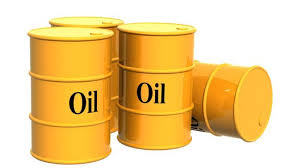09 March 2013, Sweetcrude, Lagos – Only two weeks ago, the US explorer, Hess Corporation, announced its seventh oil find in Ghana. The discovery on the Deepwater Tano/Cape Three Points block offshore Ghana, encountered approximately 40 feet of net oil pay, further confirming the former Gold Coast, which won independence from Britain in 1957 as a major oil province.
The latest oil find is only one of the many discoveries from Ghana’s prolific oil fields since UK’s Tullow Oil led the partnership comprising Anadarko Petroleum, Kosmos Energy, Sabre Oil and Gas, Ghana National Petroleum Corporation and E.O. Group to strike Ghana’s first oil at the offshore Jubilee field in 2007 as the country was celebrating 50 years of independence from Britain. It was a most auspicious moment for a nation that had long been expectant of joining the league of oil producing nations. The oil success was marked by celebrations across the land, more so at the Osu Presidential Castle in Accra, where excitement rented the air as champagne flowed.
“Oil is money, and we need money to do the schools, the roads, the hospitals. If you find oil, you manage it well, can you complain about that?
“Even without oil, we are doing so well, already. Now, with oil as a shot in the arm, we’re going to fly,” an excited President John Kufuor had said. For him, the discovery would give a major boost to Ghana’s economy.
In the outpouring of emotions following this discovery, one clear message rang out: Ghana will ensure profitable exploitation and utilisation of its oil to avoid the ‘oil curse’ that had befallen many oil-rich nations, the clearest example for Ghana being Nigeria, where oil had brought immense income into the national coffers, yet fuelling corruption and massive poverty in the country.
For over a century, operators have sought oil around Ghana. Despite over 100 wells being drilled by the 1990s, nothing significant and transformational was found. The results must have been frustrating, considering the discovery rate around Nigeria and other parts of the Gulf of Guinea, where onshore and offshore oil and gas fields have made countries in the region key suppliers to the international oil and gas market.
But, the historical discovery by Tullow and company on Jubilee field cleared all the frustration of the decade search for oil. Since the June 2007 find, the former British colony has hit oil right, left and centre.
In February 2008, the Jubilee partners announced a second significant oil discovery offshore Ghana on the West Cape Three Points Block. The Odum-1 exploration well confirmed the oil accumulation on the block based on the results of drilling, but the discovery well was suspended as a future development well.
Italian energy group, Eni, made its first oil find in September 2012. Africa’s biggest foreign oil and gas producer, and international oil marketer Vitol, made the discovery at the Offshore Cape Three Points (OCTP) block, located about 50 km off the coast of the country. An official statement by Eni, which said the discovery was made through its Sankofa East-1X well, disclosed that the discovery was important because of the “presence of oil, as well as natural gas and condensates.”
Eni was later to confirm the commercial viability of the discovery, estimating the overall potential of the find to be around “450 million barrels of oil in place with recoverable resources of up to 150 million barrels.”
Hess Corporation has since 2007 hit six discoveries before the recent one announced on February 28 at the Pecan North-1 well, which it said encountered approximately 40 feet of net oil pay.
But, Wednesday, December 15, 2010 marked a great day for Ghana. On that day, the country produced its first oil, delivered through a 120,000 barrels per day, b/d, floating production, storage, and offloading, FPSO, vessel, Kwame Nkrumah MV21. The milestone moved Ghana into Africa’s oil exporters’ club. Notably, Jubilee, a $3.3bn project, remains the fastest ever deepwater development to come to fruition. Its initial output was 50,000 b/d, which will plateau at 120,000 b/d. From 2014, during its second phase of oil production, output is scheduled to hit 250,000 b/d.
“I am very proud to be part of it. First oil from the Jubilee field is a wonderful occasion for Ghana, its government and people, the Jubilee partners and Tullow. It is the culmination of a lot of dedication and hard work from a world-class team on a world-class field.
“So many people deserve recognition and thanks, my personal thanks go in particular to the government of Ghana. Their support and commitment to this project helped the Jubilee partners ensure that first oil for Ghana became a reality,” said Aidan Heavey, founder, Tullow Oil at the First Oil ceremony witnessed by then Ghana president, late John Atta Mills.
By August 2012, Jubilee oil field output has hit 83,000 b/d, following success with an acid stimulation exercise conducted by Tullow Oil and partners. US Kosmos Energy, one of the Jubilee Field partners, confirmed that production has hit 83,000b/d due to the success achieved with an acid stimulation programme on one of the wells. Observers say the field may finally be on the path to reaching earlier production targets of 90,000 barrels per day following the August 2012 increase in production.
A report by ECOBANK Research said of the potentials of the Jubilee field: “Success at the Jubilee Field supports our optimistic outlook on Ghana’s crude oil potential. On base estimates, the Jubilee Field is believed to hold about 800 million barrels, which at a peak production of 120,000 bpd would guarantee Ghana at least 18 years of production and revenue from export sales.”
“The potential is greater if the country is able to further de-risk Jubilee Field reserve estimates of 1.5 billion barrels. Tullow has also estimated that the upcoming Tweneboa, Enyenra and Ntomme, TEN, fields hold an average recoverable reserves potential of 360 million barrels of crude oil.
“This boost to production will cost the Jubilee partners at least $1.1 billion at completion as the remediation programme includes the drilling of eight new production wells, which could take another 14 months to complete”.
Observers, in affirming Ghana’s oil fields as prolific, refer to the fact that its offshore oil exploration area is firmly situated in the West African Transform Margin in the Gulf of Guinea, which the United States Geological Survey, USGS, believes holds an estimated 33 billion barrels of crude oil.
Infact, they say Ghana’s oil reserve potential is largely still under-explored and could compete favourably with that of Nigeria.
This belief has seen Ghana attract considerable investor interest, more recently from South Africa’s National Oil Company, PetroSA, which has bid for local Ghanaian firm, Sabre Oil & Gas’s stake in the Jubilee Field.
Jubilee production is expected to peak this year at a rate just above 120,000b/d. This would lift Ghana above older mid-tier producers such as Chad, Cameroon, Cote d’Ivoire and the Democratic Republic of Congo, DRC.
From its oil production and export, Ghana has seen a steady inflow of the petro-dollar into its coffers. In 2012, for instance, petroleum revenue accruing to the state hit $340 million following the announcement of a third quarter receipt of $64.91 million.
The third quarter receipt, published by the Ministry of Finance and Economic Planning, MOFEP, addition to $236.76 million of petroleum revenue released for the first and second quarters of the year, brought total receipts from petroleum to about $340million.
Of the total receipts, $146.5 million, representing 42.7 per cent was transferred to the GNPC. The Ministry of Finance did not report on third-quarter transfers to the Ghana Petroleum Funds, GPF, which, according to the Petroleum Revenue Management Act, should receive any excess revenues above the quarterly Annual Budget Funding Amount, ABFA – the share of revenues spent directly on the annual budget.
The ABFA should be at most 70% of the oil revenues, excluding transfers to GNPC, also known as the benchmark revenue. In the first half of that year, GHC 24 million and GHC 7.2 million were transferred into the Stabilisation Fund and Heritage Fund respectively.
Bank of Ghana data show that the Ghana Petroleum Funds as at January 2012 had an opening book value of $54.8 million and $14.4 million, while the closing book value as at June 30, 2012 stood at $54.9 million and $14.44 million for the Stabilisation Fund and Heritage Funds respectively. These, surely, are a lot of money.
With its huge oil revenue and potentials for increased oil discovery and production, the question remains whether Ghana would be able to avoid the ‘oil curse’. Only time will tell.




